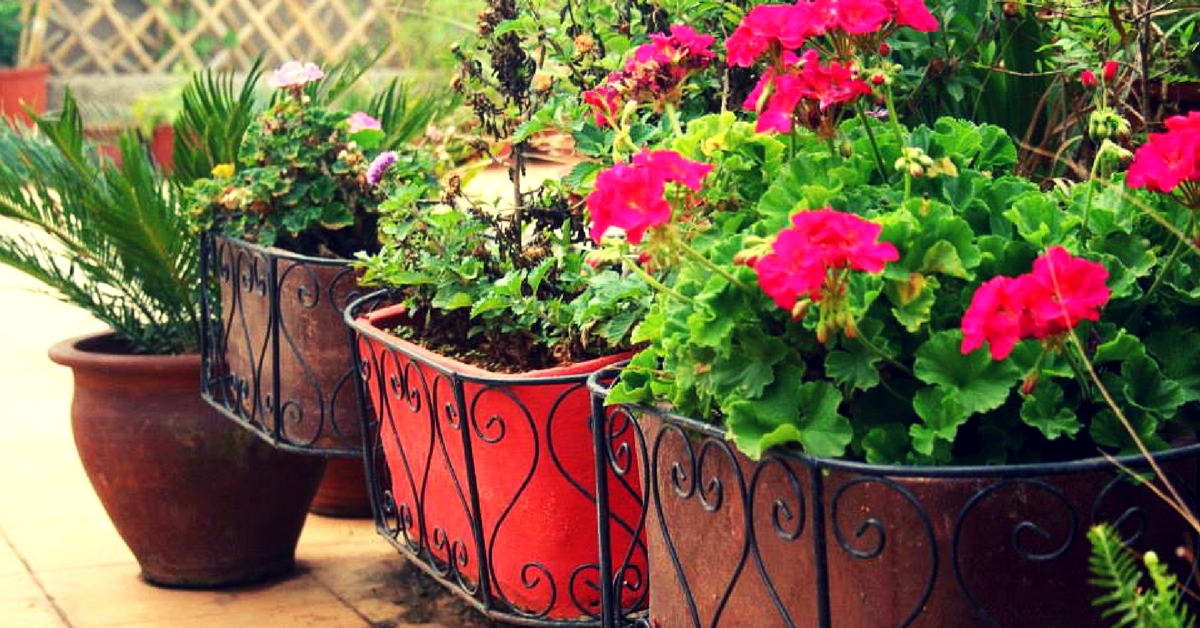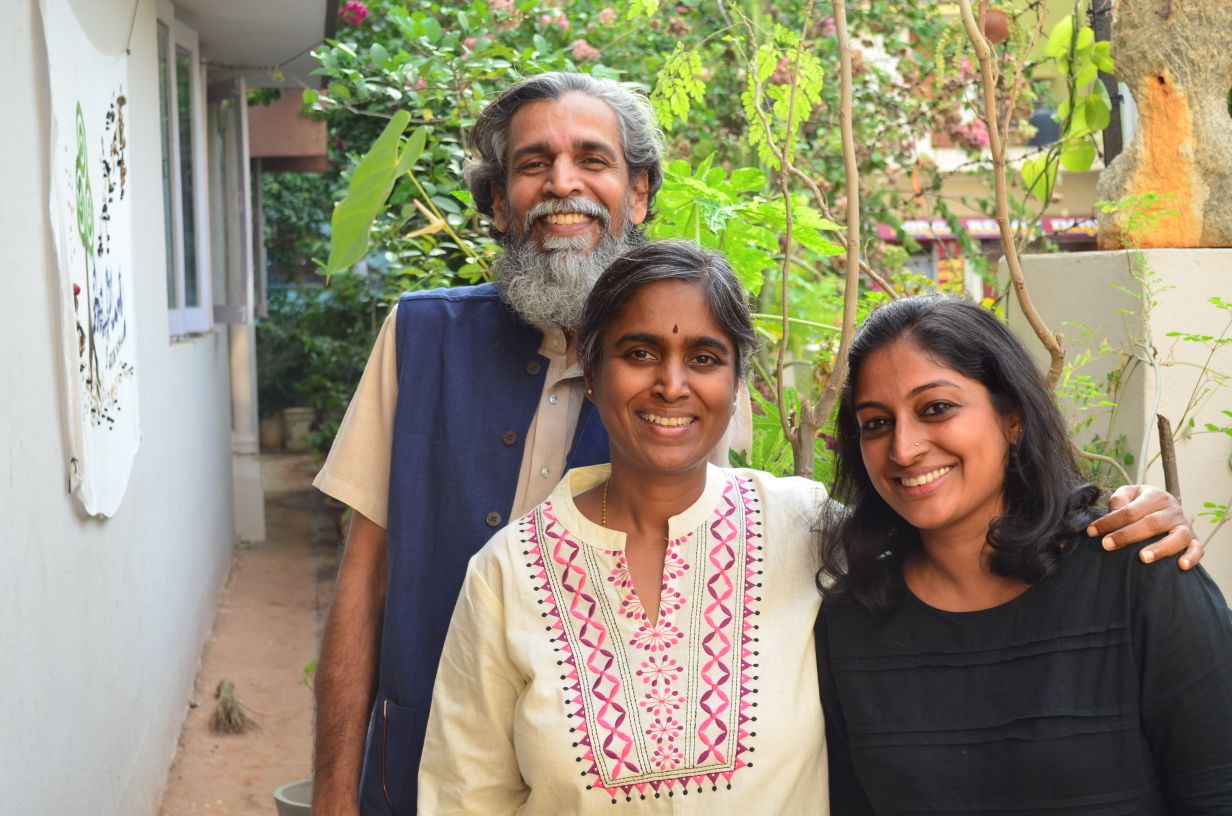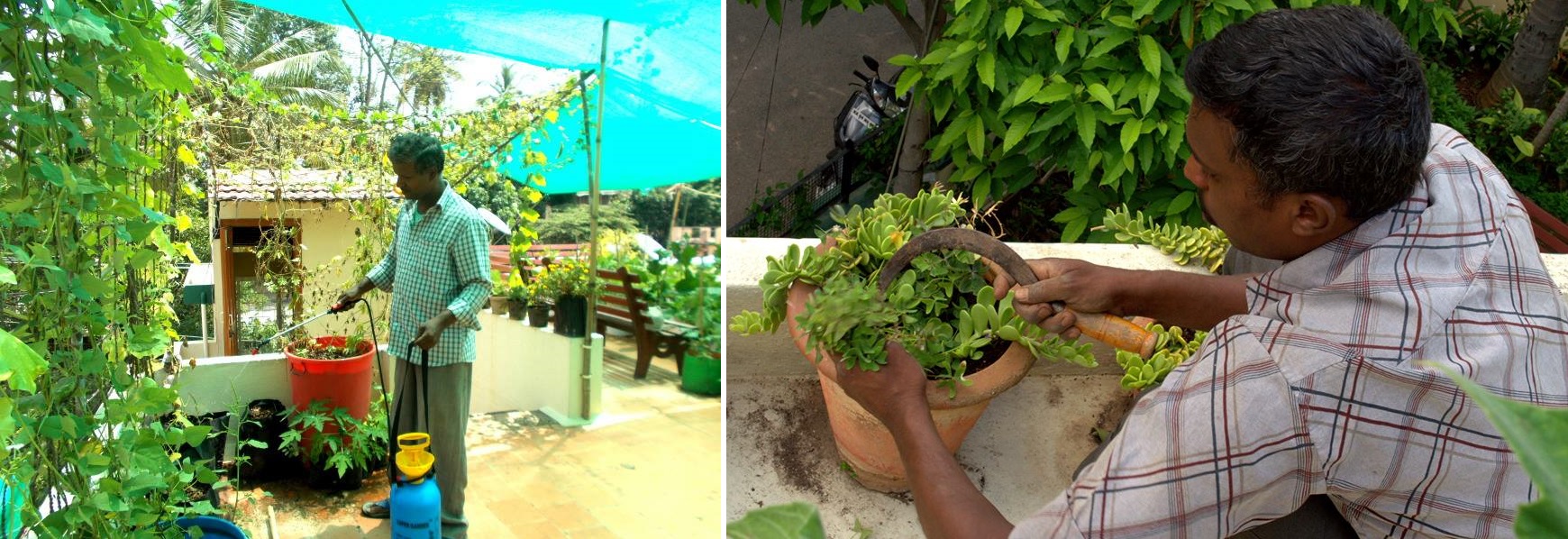On Window Sills & Terraces: Bangaloreans Are Setting up Gardens Everywhere, and Loving It!
Crammed spaces, concrete jungles, and zero touch with nature – while many urban dwellers are struggling with such problems, a social enterprise in Bengaluru has found a solution to help people set up their personal green spaces, wherever they want.

Crammed spaces, concrete jungles, and zero touch with nature – while many urban dwellers are struggling with such problems, a social enterprise in Bengaluru has found a solution to help people set up their personal green spaces, wherever they want.
“I have always been interested in plants. In the home where I was raised, the garden area was larger than the living area. My uncles and aunts would plant amazing mango, coconut, jackfruit, and lemon trees. While I didn’t realise it then, I was connected to nature from the time I was a young girl,” says Dr. Vandana Krishnamurthy – nature lover and founder of Urban Mali.
Started in July 2015, Urban Mali is a social enterprise that provides services to set up gardens in Bengaluru, using native plants.
The enterprise has set up 75 gardens in the city till now, including those in balconies, on window sills, large front and back yards, and terraces.

(L to R)
All a customer has to do to set up a garden is call Urban Mali. A gardener goes to their place for a site visit, following which the enterprise creates a cost and design proposal. Once everything is finalized, gardeners will come over to your place and set up things as required.
The green beginning

Vandana, 33, completed her masters and PhD in Botany. Yet, when it came to growing or planting trees, Vandana always used to say that she has “not just a brown thumb but a black hand.”
After getting married, she moved into a home where the previous tenants had left some unused plant pots with soil. While she didn’t have any inclination towards doing anything about them, one day while sitting there and eating, she dropped a tomato seed into a pot from her plate. And to her surprise, it grew into a plant in a weeks’ time.
“That was the turning point for me to think that this is something that can make a huge impact in the city. That one tomato seed is really the reason why Urban Mali exists,” she laughs.
Also read: Bengaluru’s Fallen Leaves Are Turning Into Fertilizers for Gardens, Thanks to a Bunch of Residents
Looking at people’s pain points through a small study, she realized that when anyone wants a garden in the city, the first thing they do is either find somebody they know and ask if they have a gardener, or they go to a nursery close by and ask if they can set up a garden.
“That’s how we figured out that the only way to spread gardens and native plants across the city is by having a service that is basically like your friendly neighbourhood gardener,” she says.
Bringing the natives back home

Plants used by Urban Mali are native to this part of the world and are well suited to the soil and climatic conditions. According to Vandana, these plants grow happily and the amount of maintenance required is less because they don’t need any pesticides when growing in their native environment. As long as they are being watered and provided with nutrients on a regular basis, these plants make the gardens completely organic.
“This is one thing that we strongly stand by because we are already breathing enough chemicals in the air. So why encourage it to get into your own home and your food!” she says.
The enterprise has two teams of gardeners who work on a daily basis setting up gardens across Bengaluru. And because it is not as big a challenge to set up a garden as to maintain one, they have a dedicated maintenance team too that goes to every garden they have set up, once each month.
Additionally, customers can call Urban Mali any time in case of issues. They also have an online WhatsApp group for queries, along with which they organize workshops on growing vegetables or starting a recycled garden, etc.
Bless those with Green Fingers:

Talking about the social impact, Vandana says that all Urban Mali gardeners are rural farmers who migrated to cities looking for work. “These are people who are basically born and brought up in farm settings. And once they move to the cities, all of them tend to take up jobs that are just labour-intensive and their skills go to waste.” This way, Urban Mali is empowering farmers to become entrepreneurs and earn better livelihoods.
Currently, Urban Mali gets a lot of calls from people who have balconies, but the organization also encourages any amount of available space to be converted into a green space. Setting up a garden can cost between Rs. 5,000 to Rs. 50,000 depending on the requirements and the size.
“We are not doing this as a huge commercial activity to just set up gardens. We want to be able to encourage urban biodiversity. We want to invite the butterflies, birds, and bees back to the city that we are losing on a daily basis,” says Vandana. While studying, she did her research on a plant species in the Western Ghats that was endangered because of its use in flower bouquets.
“What really struck me at the time was that people sitting in the cities are the ones who are affecting our forests with these terrible decisions. And while it is very easy to go to the forests and conduct research, it is the mindsets of people that needs to be changed,” she says. And that’s exactly what Urban Mali aims to do by setting up gardens and helping people connect with the plants at a personal level.
Also read: Learn the Art of Composting in Your Home & Watch Your Kitchen Waste Turn to Wealth
Some of the native plants include Jasmine, red and white Hibiscus, Crossandra, Tulsi, Spatika, Oleander, and Marigold.

Talking about the impact, Vandana says that success for them is very different from what most people will call success. “Our mission is to create an emotional connect towards plants. So people call us to tell that ‘today 15 butterflies visited my garden’ – that’s success for us. Or that ‘my son has harvested a plant, and he is so happy.’ All of these are so heartwarming stories.”
Urban Mali has been incubated by Arty Plantz – an incubator started by Radha and Krishnamurali Eshwar, who are the mentors of Urban Mali. The incubator mentors and supports social initiatives related to sustainability and nature.
“I think everyone should be able to set up their own gardens. Just get creative – you can go vertical, you can hang stuff, there are so many different ways in which you can grow plants. And it is one of the most rewarding experiences ever. It is literally like you have a friend in the plants,” concludes Vandana.
Know more about Urban Mali here and contact the team here.
Like this story? Or have something to share? Write to us: [email protected], or connect with us on Facebook and Twitter.
NEW: Click here to get positive news on WhatsApp!

Similar Story

Bengaluru’s Rain Nightmare: ‘Zenrainman’ Shares 6 Ways to Stop Floods from Repeating
S Vishwanath, a civil engineer and urban-regional planner with over three decades of experience in the water and sanitation sector explains what Bengaluru must do to prevent flooding and water-logging.
Read more >
If you found our stories insightful, informative, or even just enjoyable, we invite you to consider making a voluntary payment to support the work we do at The Better India. Your contribution helps us continue producing quality content that educates, inspires, and drives positive change.
Choose one of the payment options below for your contribution-
By paying for the stories you value, you directly contribute to sustaining our efforts focused on making a difference in the world. Together, let's ensure that impactful stories continue to be told and shared, enriching lives and communities alike.
Thank you for your support. Here are some frequently asked questions you might find helpful to know why you are contributing?


This story made me
-
97
-
121
-
89
-
167












